M&A market set to boom again in 2025
At the 2024 Vietnam M&A Forum, themed "A Blossoming Market" hosted by VIR on November 27 in Ho Chi Minh City, representatives from international organisations gathered to discuss the macroeconomic context, policy changes, global trends affecting Vietnam's merger and acquisition (M&A) market, and international capital flows amidst evolving macroeconomic conditions and new regulations on foreign ownership limits and tax incentives.
At the first panel, Seck Yee Chung, partner of Baker McKenzie, pointed out the hard work by Vietnam's legislators with the major changes involving the Land Law, the Law on Real Estate Business, and the Law on Housing. In addition, the Law on Telecommunications rules that foreign investors can fully own data centre companies.
"However, my sense is that they might take some time to reform the regulations," he said.
In particular, the Vietnamese government has a long-standing agenda to equitise state-owned enterprises, perhaps having them listed, and maybe at some point there could be divestments. All of these efforts are to try to modernise the companies, to unlock value, and to move out of sectors where it's really not necessary for the state to be so directly involved.
"One of the eye-catching deals is the divestment of state shares in Sabeco many years ago. Having said that, I do believe that there are challenges around this initiative. Perhaps it also has a lot to do with the companies themselves. I do believe it takes time because it's not that easy to try to modernise a business as well as to train the management and the team," added Chung.
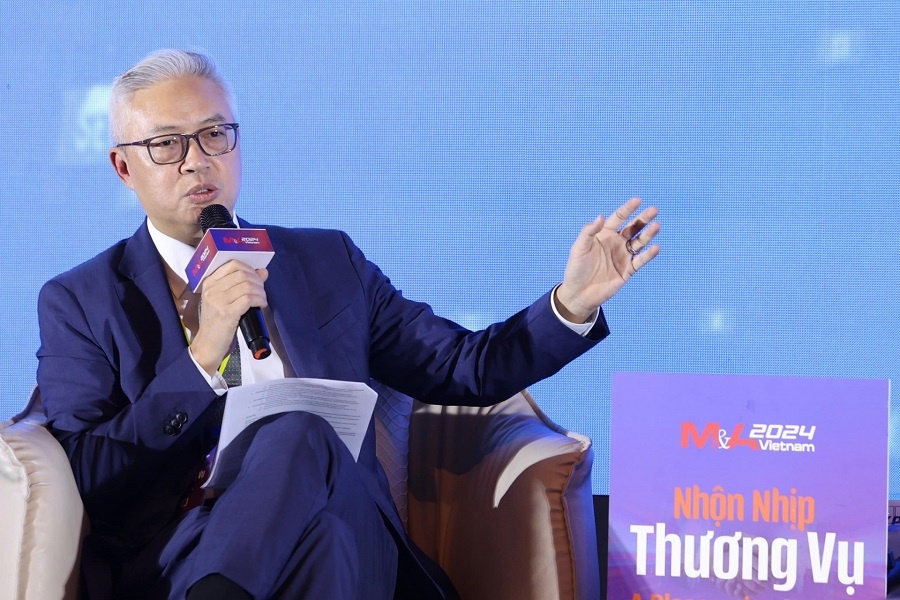 |
| Seck Yee Chung, partner of Baker McKenzie |
Dinh The Anh, partner and head of corporate finance at KPMG Vietnam, noted that the M&A market has experienced a decline over the past two years. However, signs indicate a recovery, with an increase in buyer activity and a return of foreign capital to Vietnam.
"The market will witness more dynamism in the near future, with several deals about to be completed. Investors from South Korea and Japan, who were quiet for the past two years, are now returning. Notably, South Korean investors with businesses or operations in Vietnam are regaining confidence in the market.”
For example, the education sector, spanning from early childhood education to English and foreign language training, as well as higher education, is attracting many investors. "This education market is seen as highly promising," added The Anh.
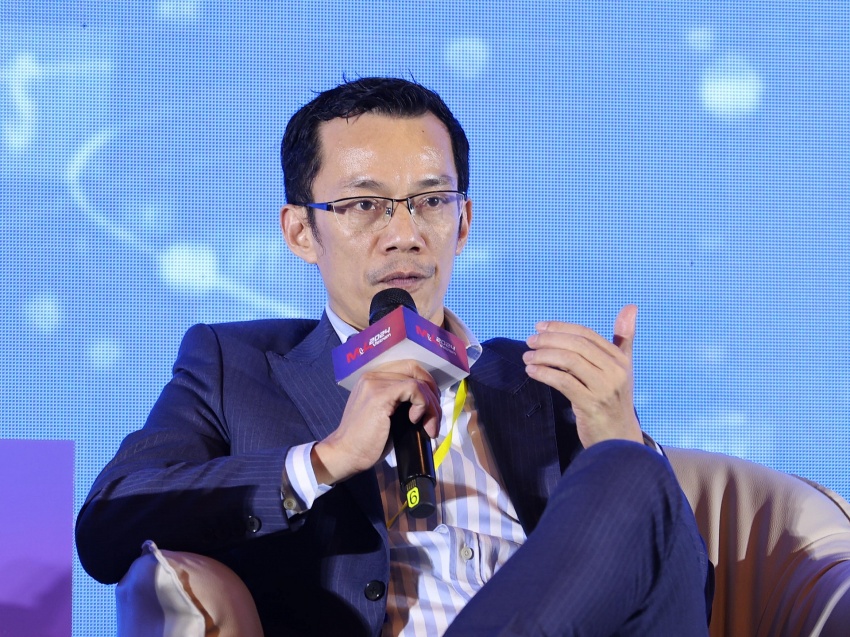 |
| Dinh The Anh, partner and head of corporate finance at KPMG Vietnam. Photo: Le Toan |
"Recent positive institutional changes have helped make Vietnam's M&A market an attractive one, with numerous deals being executed," emphasised Vo Ha Duyen, chairwoman of VILAF law firm, during the discussion at the 2024 Vietnam M&A Forum.
In addition, efforts to reform administrative procedures and accelerate digital transformation were recognised as key factors driving positive changes in Vietnam's M&A market.
Duyen stated that the most significant development is the reduction of regulatory burdens and the expansion of investment opportunities, particularly in green technology, renewable energy, and sustainable development. "Moreover, Vietnam has gradually eased foreign ownership limits, allowing up to 100 per cent ownership in many sectors, such as e-services and gaming services. This makes it easier for foreign investors to enter these fields.”
However, Duyen also pointed out challenges to be aware of in Vietnam's M&A activities. "Many policies are still in draft stages or under review, so investors must carefully assess the potential impact on future M&A deals. This may lead to delays in some transactions," she stressed.
With the positive trends outlined, VILAF expects more M&A deals in 2025, particularly in sectors such as logistics, manufacturing, technology, and finance.
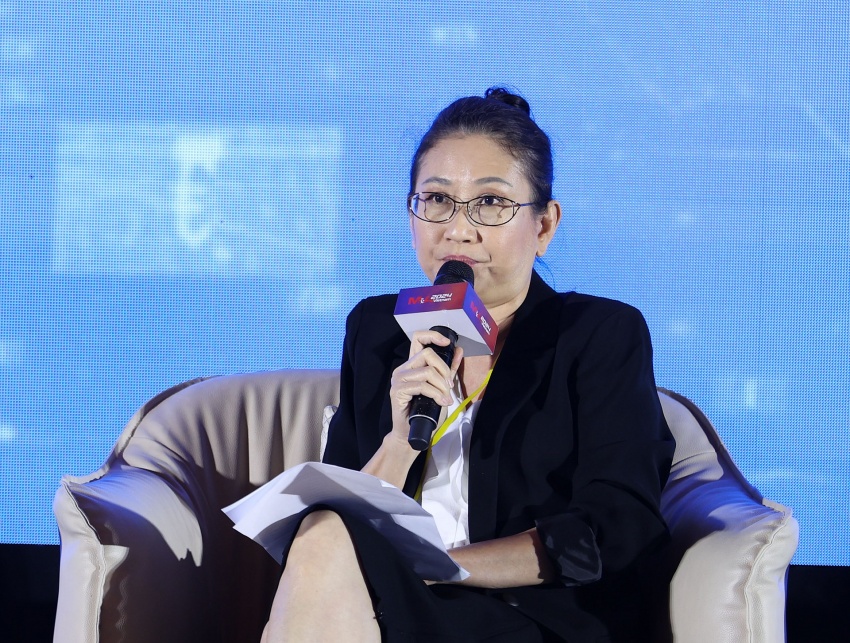 |
| Vo Ha Duyen, chairwoman of VILAF. Photo: Le Toan |
Sharing a similar view with the VILAF representative on how positive institutional changes have enhanced the attractiveness of Vietnam’s M&A market, Oh Hsiu-Hau, managing partner at Allen & Gledhill (Vietnam), expressed optimism about the continued dynamism of M&A activities in the country.
“Real estate and healthcare are among the key sectors to watch,” Oh noted, “Particularly industrial real estate, which is expected to see a surge in M&A transactions.”
He added that the ongoing amendments to Vietnam's Real Estate Law have also positively impacted the market, creating favourable conditions for foreign investors to enter Vietnam's real estate sector through M&A deals.
Highlighting the healthcare sector, Oh emphasised that Vietnam has already witnessed numerous M&A transactions in medical and healthcare services. Allen & Gledhill Vietnam anticipates even more deals in this sector in the coming years.
“With regulatory changes and a strengthened legal framework in healthcare, foreign capital inflows are expected to increase, making the sector a standout in M&A activity,” Oh stated.
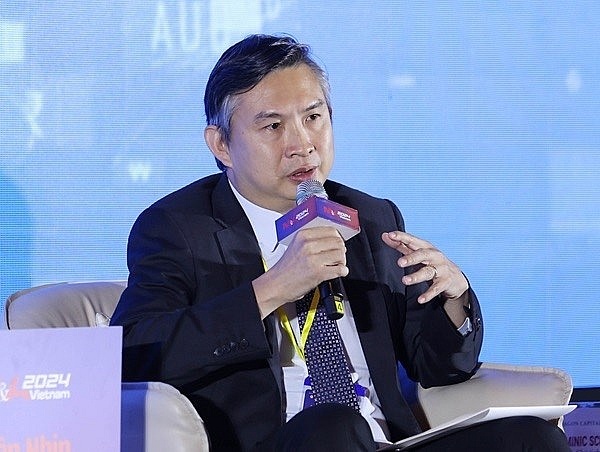 |
| Oh Hsiu-Hau, managing partner at Allen & Gledhill (Vietnam), Photo: Le Toan |
Taking a broader perspective, Dominic Scriven, chairman of Dragon Capital, commented on the global outlook in light of the newly elected US President Donald Trump. While there might be short-term negatives, he said, the medium and long-term prospects are positive.
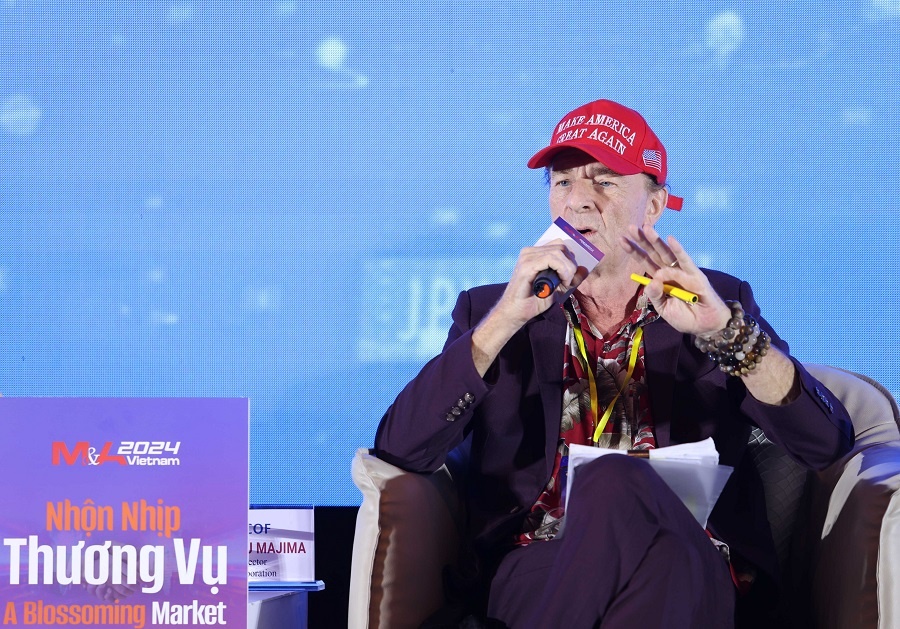 |
| Dominic Scriven, chairman of Dragon Capital, Photo: Le Toan |
“Vietnam is undergoing significant policy reforms, which are set to drive a recovery in business performance,” Scriven remarked. He noted that public companies in Vietnam faced challenging business conditions in 2022 and 2023. However, 2024 has shown signs of recovery, with profits in the first nine months rising by 18-19 per cent.
“This recovery builds investor confidence, making the M&A environment increasingly optimistic for the future,” he added.
Nonetheless, Scriven highlighted three persistent challenges for Vietnam's M&A market including the business environment, supply issues, and the alignment of expectations between buyers and sellers.
Representing global real estate operators, Lee Leong Seng, Lee Leong, Head of property development/residential, Real Estate (Vietnam), Keppel Ltd,, emphasised the need for effective collaboration with local partners.
Lee stated that now is the ideal time for global companies to partner with local businesses to create high-quality real estate products. "Vietnam, with its rapidly growing economy and young population, is a promising destination for many international investment funds. This is the perfect time for global companies to collaborate with local businesses to develop top-tier real estate products.”
The Keppel representative is confident that the combination of international investment capital and local market expertise will lead to great success. Looking ahead to 2025, with new policies in place, Keppel expects macroeconomic changes to be transformed into concrete actions that will contribute to the sustainable development of Vietnam's real estate sector.
"We are particularly excited about the positive changes in Vietnam's investment environment. These improvements boost foreign investor confidence and open up development opportunities for both traditional and emerging industries," said Lee.
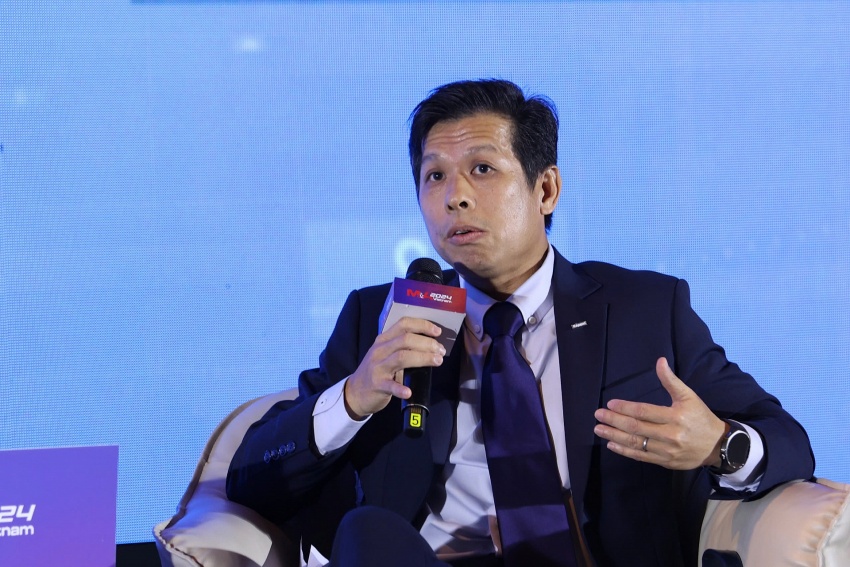 |
| Lee Leong Seng, head of Property Development/Residential, Vietnam Real Estate at Keppel. Photo: Le Toan |
Tamotsu Majima, senior director at RECOF Corporation, shared the challenges faced by Japanese companies in M&As. He highlighted two main issues, including the significant gap in valuation between buyers and sellers, and the lengthy approval processes involving multiple authorities with different guidelines.
"In some sectors where business performance has not met expectations, sellers often set high valuations, while buyers, relying on the most recent financial reports, find a large valuation gap," Majima explained.
Despite these challenges, Majima remains optimistic about Vietnam's market potential. "Vietnam is a very promising market, with GDP growth consistently at 6-7 per cent, compared to just 1-2 per cent in Japan. Although Japanese investment in Vietnam has slowed recently, this may change as Japan's new government introduces reforms to encourage outbound investment. Additionally, Japanese companies, under pressure from shareholders, are now looking to deploy their large cash reserves abroad."
"By 2025, the M&A market in sectors like consumer goods, manufacturing, and services will be very active," concluded Majima.
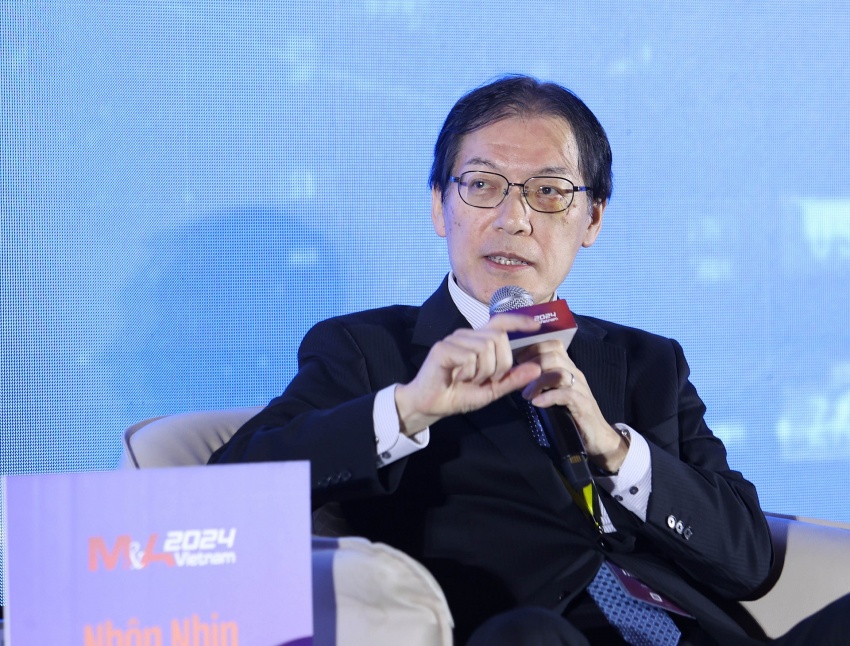 |
| Tamotsu Majima, senior director at RECOF Corporation. Photo: Le Toan |
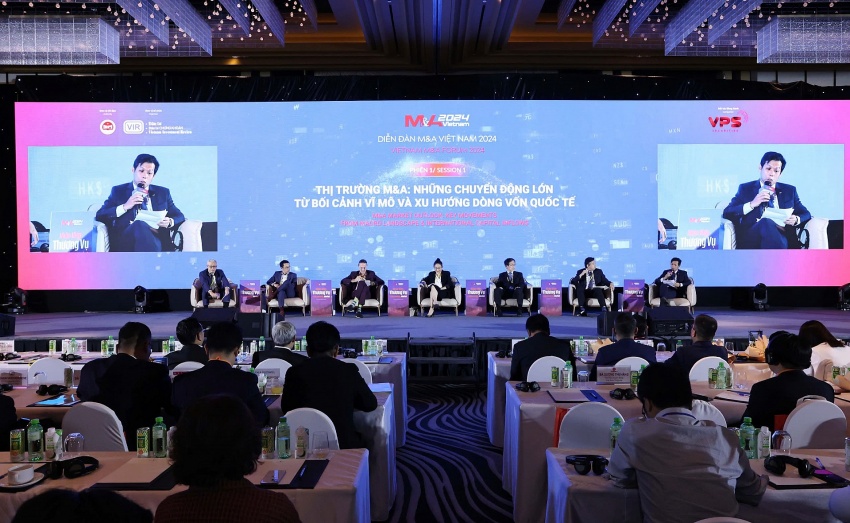 |
| Overview of the discussion session. Photo: Le Toan |
 | Vietnam’s M&A market expected to rebound next year As Vietnam sets a high target for economic growth in 2024, mergers and acquisitions are projected to rebound on the back of growing foreign interest. |
 | Vietnam’s M&A market set for 2025 surge amid regulatory reforms and foreign investment Speaking on the sidelines of the 16th M&A Vietnam Forum 2024 at the JW Marriott Saigon on November 27, Oh Hsiu-Hau, managing partner at Allen & Gledhill (Vietnam), shared his insights with VIR's Ngoc Huong on the outlook for the M&A market. |
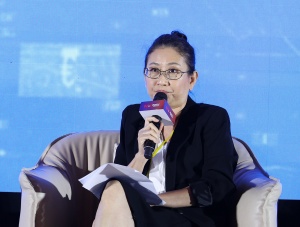 | Positive institutional changes boost Vietnam's M&A market Vo Ha Duyen, chairwoman of law firm VILAF, stated that recent positive institutional changes have helped make Vietnam's merger and acquisition (M&A) market more attractive. |
 | The key factors shaping Vietnam's M&A market for 2025 Nguyen Cong Ai, senior partner of Deal Advisory at KPMG Vietnam, delivered his keynote speech at the 2024 Vietnam M&A Forum on November 27, highlighting the key factors shaping the outlook for next year. |
What the stars mean:
★ Poor ★ ★ Promising ★★★ Good ★★★★ Very good ★★★★★ Exceptional
Related Contents
Latest News
More News
- Vietnam, New Zealand seek level-up in ties (February 19, 2026 | 18:06)
- Untapped potential in relations with Indonesia (February 19, 2026 | 17:56)
- German strengths match Vietnamese aspirations (February 19, 2026 | 17:40)
- Kim Long Motor and AOJ Suzhou enter strategic partnership (February 16, 2026 | 13:27)
- Haiphong welcomes long-term Euro investment (February 16, 2026 | 11:31)
- VIFC in Ho Chi Minh City officially launches (February 12, 2026 | 09:00)
- Norfund invests $4 million in Vietnam plastics recycling (February 11, 2026 | 11:51)
- Marico buys 75 per cent of Vietnam skincare startup Skinetiq (February 10, 2026 | 14:44)
- SCIC general director meets with Oman Investment Authority (February 10, 2026 | 14:14)
- G42 and Vietnamese consortium to build national AI infrastructure (February 09, 2026 | 17:32)

 Tag:
Tag:




















 Mobile Version
Mobile Version